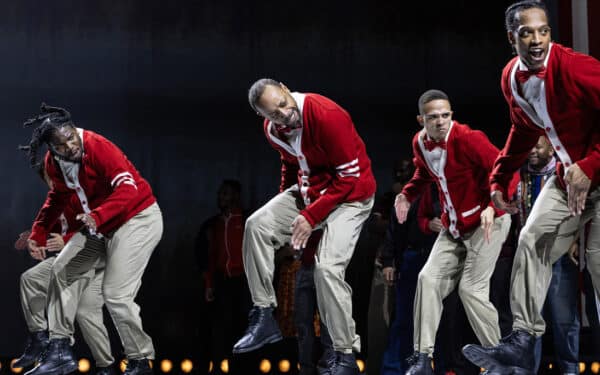In 1673, Alexander Mavrocordato was confirmed as the Grand Dragoman of the Ottoman Empire. He wasn’t the first to hold the job, but he was one of the most powerful, creating a dynasty, brand and industry. He was the Ottoman Emperor’s chief interpreter and deputy foreign minister, second only to the Vizier. Adroitness in languages and diplomacy made him the unofficial ‘Keeper of Secrets’ at the Sublime Porte.
Ten years later, he was dealing with the outcome of the failed siege of Vienna. In 1699, he was one of the guiding hands at the Treaty of Karlowitz, which among other things created the Serb marchland of Krajina on the fringes of Croatia, from which the Serbs were expelled in the summer of 1995. And in 1709, his son Nicholas Mavrocordato succeeded as top dragoman.
“With Mavrocordato you really get the beginning of the whole modern industry of interpreting and translation,” says Anna Aslanyan, author of a joyous account of the whole story of translation, and misinterpretation, Dancing on Ropes, Translations and the Balance of History.
She herself is a professional interpreter and translator, a licenced freelance for the past ten years, working in distressing welfare and criminal cases, and relaxing by translating Russian avant garde literature. She writes from the eyeline of the engaged participant rather than detached spectator. Much of her comments are from one professional to others – and all the more fun for that.
The title comes from the lament of John Dryden in the introduction and commentary to his translation of Ovid’s Epistles. “In short, the verbal copier is encumbered with so many difficulties at once, that he can never disentangle himself from all,” Dryden writes. “It is much like dancing on ropes with fettered legs.”
Mavrocordato and his descendants are the fulcrum of the story. He was a man of affairs, recruiting translators from Italy, a qualified doctor, and a gossip. “I went to read his letters to the British Minister, Paget, which are now kept in the library at the School of Oriental and African Studies in London. In those days they used sand, not blotting paper. It was extraordinary to be able to touch the grains of sand, as he had thrown them across the page,” Aslanyan says.
The dragomans of the Greek Phanariote clans almost inevitably came to a sticky end. Stavrachi Aristarchi became Grand Dragoman in 1821, the year of the War of Greek Independence. He fled the Porte for his life, but was killed a year later.
Omissions, lapses, errors, exaggerations litter the pages of Aslanyan’s books – in the work of many genius translators. One serious gap was the failure in the Allied ultimatum for Japanese surrender in the mid-summer of 1945 to indicate that it was not a demand for unconditional surrender. However, the Japanese High Command took it as a demand for unconditional surrender and turned it down. Hiroshima and Nagasaki followed.
The interpreters for the dictators and those at the Nuremberg Tribunal were faced with profound issues of psychology and ethics. The dictators by and large, says Aslanyan, were a difficult lot – interrupting and often vague in their own language, Hitler notoriously so on occasion. One of the most comedic episodes is the banqueting and toasts at the Tehran ‘Big Three’ conference in 1943. Curiously, Stalin was about the easiest to translate, speaking in short paragraphs and pausing for the interpreter, which Churchill and Roosevelt would forget to do. At the last banquet a toast was proposed to the interpreters themselves, as a token of thanks. Apocryphally, Churchill is said to have replied, “Interpreters of the world unite, you have nothing but your audiences to lose.”
Nuremberg produced strange games of cat and mouse – especially from the defendants who knew English well, like Goering and Albert Speer. It also saw the use of simultaneous translation – the new equipment arrived only four days before the hearings started. Some interpreters never got used to the new method – whereas others excelled at the technique of ‘whispering translation’, where the interpreter whispers into the subject’s ear.
The big political beasts like Goering were performers in their own right, bent on having their day to hold the whole stage and audience. A political thespian nearer our own time, Silvio Berlusconi, has attracted an interpreter of theatrical genius; Ivan Melkumjan. An Armenian from Baku, Melkumjan went to Italy to train as an opera singer, but had to fill in with odd translation jobs for the state radio. One day the Foreign Ministry asked him to help out in a sudden shortage of interpreters for Russian and Italian. Melkumjan is the ultimate improv-interpreter, Anna Aslanyan tells me. “He told jokes, which he improvised from the original and got a big laugh – Berlusconi loves him for it, and Putin admired him, too.”
Running through this book, like a thin, gaudy thread of Armenian embroidery on Ottoman silk, is the translator-creator. Most astonishing, perhaps, are the Jesuits following Matteo Ricci into China from the 16th century on. Ricci translated from memory – most of his library was in his head. “They were generous and respected local customs and rituals – one even altered the story from the New Testament as he couldn’t get the appropriate picture to illustrate the sequence of episodes,” the author says.
Even in the most extravagant endeavor of collective political translation, the King James Bible of 1611, the translators deliberately chose expressions that were already archaic. But who can fault the poetic rhythm of “and on earth peace, good will toward men.”
One of the most poetic of all translators of that day, or any for that matter, is John Florio, professional translator, and for some a pedant. He is said to be lampooned by Shakespeare as Holofernes in Love’s Labour’s Lost. This covered, perhaps, a huge sense of debt. Shakespeare read Montaigne’s essays in Florio’s wonderful – not to say, florid – translation: the meeting of two of the greatest humanist minds. Florio’s poetic prose is haunting. On Cruelty – “But it is with such an yearning and faint-hartednesse, but I see but a chickins necke puld off, or a pigge stickt, I cannot chuce but grieve, and I cannot endure a seelie dew-bedabled hare to groane, when she is seized upon by the houndes; although hunting be a violent sport.”
In the same sentiment, Shakespeare writes in Venus and Adonis:
“Or, as the snail, whose tender horns being hit,
Shrinks backwards in his shelly cave with pain,
And there, all smother’d up, in shade doth sit,
Long after fearing to creep forth again;
So, at his bloody view, her eyes are fled
Into the deep dark cabills of her head;”
The same creative magic colours the translations of Jorge Luis Borges, Italo Calvino and Umberto Eco’s work, all three friends and admirers. Norman Thomas di Giovanni met Borges when lecturing at Harvard. “He offered to help translate – and it became a remarkably creative and intimate relationship. Borges hadn’t written much for years,” says Aslanyan, “but di Giovanni went to Buenos Aires to help him. They would walk to the National Library and he would read his latest workings to Borges and they worked together. The translations were remarkable – are remarkable. But it ended badly with family jealousies and the di Giovanni works have been forgotten – they shouldn’t be.”
The story of William Weaver, translator of Eco and Calvino, is more joyous. In Tuscany, he built a studio extension, dubbing it “the Eco chamber – it’s built from the royalties from ‘The Name of the Rose’ translation”. Aslanyan points to a felicitous improvisation by Weaver in Foucault’s Pendulum’ The passage translates literally as, “God created the world by speaking . He didn’t send a telegram. Fiat lux, stop. Letter follows. To the Thessalonians, I guess.” Weaver tweaks this to “Fiat Lux. Epistle follows” – with Eco’s approval.
Both Calvino and Eco must have been fun to work for. Calvino apparently loved American techno-jargon; his quirky jargon was brilliantly caught in Toby Jones’s recent radio version of Marcovaldo for Radio 4. But, Aslanyan says techno-jargon has bear traps. One of the earliest Swedish ads for Electrolux vacuum cleaners read “the new Electrolux really sucks.”
On the use of technology and AI in translation, the author is remarkably balanced. It isn’t all bad and even Google translations are improving swiftly. After all, it was a process pioneered by Ada Lovelace working with Babbage and his calculating machine.
More worrying is the state of official interpretation and translation services – which have been pretty disastrous since the government privatised the services more than a decade ago, along with DNA and fingerprinting analysis. In courts translation services are often plain inadequate – as in the case of the abused Pakistani mother who killed her husband. She pleaded guilty to murder, since neither judge nor interpreter ensured that she understood the concept of manslaughter. However, Anna Aslanyan suggests that services are being improved, scrutinised more closely and brought in-house.
There is a general decline in the enjoyment and deployment of languages in England , while an opposite trend is running in Europe. The UK and the US are becoming more monoglot, insisting on proficiency in English before being offered employment and residency. In some respects, this brutal monoglot culture can be crass. Thousands of desperate Guatemalans are arriving at the US border without any chance of being understood; interpretation is offered solely in Spanish, and most of the fugitives speak only Mayan.
Languages are taught less in England – the plummeting figures speak of a deliberate policy of cultural starvation here. Just over ten years ago, says Aslanyan, 73 per cent of GCSE students would take at least one language. Now the number is below half that. Welcome to cultural desertification.
For Anna Aslanyan some great challenges, and joys, lie ahead. She is now working on a translation of Sergei Tretyakov, avant garde Russian writer and playwright of the twenties and thirties and buddy of Bertolt Brecht. “He’s never been translated – he was a real visionary and said he didn’t believe in fiction at all.”
If it is anything like Dancing on Ropes, there is a real treat in store.
Dancing on Ropes: Translators and the Balance of History by Anna Aslanyan (Profile Books), £16.99.




